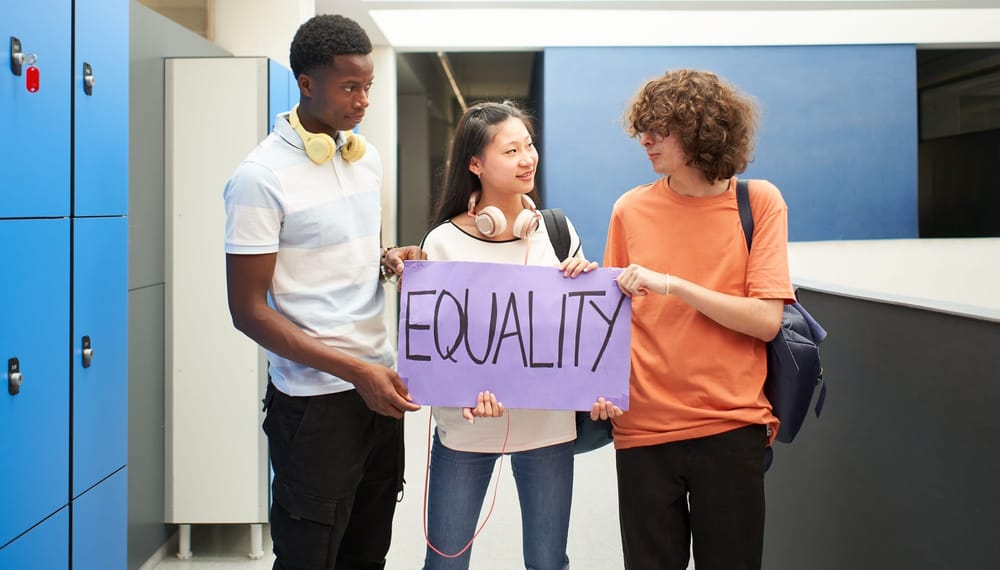The Supreme Court of the United States has long been a cornerstone in the evolution of labor law, wielding its judicial authority to interpret statutes and set precedents that have profoundly influenced the landscape of employment rights and obligations. Through its landmark decisions, the Court has navigated complex issues surrounding workers' rights, union activities, and the intricate dynamics between employers and employees. These rulings not only reflect the Court's interpretation of existing laws but also shape future legal frameworks and societal norms.
In this comprehensive analysis, we will examine pivotal Supreme Court cases that have significantly impacted labor law in America. By exploring these landmark judgments, we aim to illuminate their influence on various facets of employment law, including collective bargaining, workplace discrimination, and beyond. This exploration will provide insights into how these decisions continue to resonate within the legal community and affect everyday working conditions.
National Labor Relations Board v. Jones & Laughlin Steel Corp (1937)
The significance of Labor Board v. Jones And Laughlin Co. (1946) cannot be overstated, as it signaled a shift towards greater federal intervention in economic matters and laid the groundwork for modern labor law. This case is often discussed alongside Wickard v. Filburn (1942) and United States v. Darby (1940), which further solidified the broad interpretation of the Commerce Clause. Together, these cases represent a doctrinal development that allowed for increased federal regulation of economic activities, reflecting a more flexible understanding of interstate commerce that continues to influence jurisprudence today.
The Supreme Court, in a landmark decision, upheld the constitutionality of the Wagner Act. The Court's reasoning was grounded in a broader interpretation of the Commerce Clause, asserting that labor relations have a direct effect on interstate commerce. Chief Justice Charles Evans Hughes, writing for the majority, emphasized that the ability of workers to organize and bargain collectively is essential to maintaining industrial peace and thus has a substantial impact on commerce. This decision marked a departure from earlier rulings such as Hammer v. Dagenhart (1917), where the Court had taken a more restrictive view of federal power over commerce. By affirming the federal government's role in regulating labor relations, the Court effectively expanded the reach of congressional authority, setting a precedent for future cases.
The case of Labor Board v. Jones And Laughlin Co. (1946) stands as a pivotal moment in the evolution of American constitutional law, particularly concerning the scope of Congress's power under the Commerce Clause. The background of this case involves the National Labor Relations Act of 1935, commonly known as the Wagner Act, which aimed to protect the rights of employees to organize and to prevent unfair labor practices by employers. Jones & Laughlin Steel Corporation, one of the largest steel producers in the United States, was charged with discriminating against employees who were involved in union activities. The legal issue at hand was whether the federal government had the authority to regulate labor relations under its power to regulate interstate commerce.
United Steelworkers v. Weber (1979)
Steelworkers v. Weber (1978) is significant as it established a precedent for the permissibility of voluntary affirmative action plans under federal law, influencing subsequent jurisprudence on race-conscious employment practices. This decision paved the way for later cases such as Johnson v. Transportation Agency Santa Clara Cty (1986), which further clarified the scope of permissible affirmative action under Title VII. Additionally, it set a foundation for understanding affirmative action in educational settings, as seen in Regents Of The University Of California v. Bakke (1977). The Weber decision remains a cornerstone in discussions about balancing anti-discrimination principles with efforts to achieve substantive equality in the workplace.
The Supreme Court, in a 5-2 decision, upheld the affirmative action plan. The Court, led by Justice Brennan, reasoned that Title VII's primary objective was to dismantle historical racial discrimination and promote equal employment opportunities. The Court emphasized that the statute did not intend to prohibit all race-conscious measures but rather those that perpetuate racial inequality. The decision underscored that the plan was a temporary measure designed to rectify past discrimination without unnecessarily trampling on the rights of white employees. The Court distinguished this case from others by noting that the plan did not involve layoffs or absolute barriers to white advancement, thus aligning with Title VII's broader goals.
The case of Steelworkers v. Weber (1978) addressed the legality of affirmative action programs under Title VII of the Civil Rights Act of 1964. The dispute arose when Brian Weber, a white employee, challenged an affirmative action plan negotiated between the United Steelworkers of America and the Kaiser Aluminum & Chemical Corporation. The plan aimed to eliminate racial imbalances in the workforce by reserving 50% of the openings in a training program for black employees until their representation in skilled positions mirrored their presence in the local labor force. Weber argued that this plan constituted reverse discrimination, violating Title VII's prohibition against employment discrimination based on race.
Hoffman Plastic Compounds Inc. v. Nlrb (2001)
The significance of Hoffman Plastic Compounds Inc. v. Nlrb (2001) lies in its impact on both labor law and immigration jurisprudence. It effectively limited the scope of protections available to undocumented workers under the NLRA, thereby influencing subsequent cases and policy discussions regarding the rights of undocumented immigrants in the workplace. Related cases include Sure Tan Inc. v. Nlrb (1983), which also dealt with the rights of undocumented workers under the NLRA, and Plyler v. Doe (1981), which addressed equal protection rights for undocumented children. Additionally, Arizona v. United States (2011) further explored the balance between state and federal powers in immigration enforcement, reflecting ongoing tensions in this area of law.
The Supreme Court, in a 5-4 decision, held that awarding backpay to an undocumented worker was inconsistent with federal immigration policy as embodied in the IRCA. The Court reasoned that allowing backpay would effectively condone and encourage future violations of immigration law by providing an economic incentive for undocumented workers to seek employment in the United States. The majority opinion, delivered by Chief Justice Rehnquist, emphasized that the IRCA's prohibition on hiring unauthorized workers precluded the NLRB from awarding backpay to such individuals. This decision underscored a tension between labor rights and immigration enforcement, highlighting the limitations placed on remedies available to undocumented workers under U. S. labor laws.
The case of Hoffman Plastic Compounds Inc. v. Nlrb (2001) addresses the intersection of labor law and immigration policy, specifically concerning the rights of undocumented workers under the National Labor Relations Act (NLRA). The background of the case involves Jose Castro, an undocumented worker who was laid off by Hoffman Plastic Compounds Inc. after participating in union organizing activities. The National Labor Relations Board (NLRB) found that Hoffman had violated the NLRA by terminating Castro for his union activities and ordered backpay as a remedy. The legal issue at hand was whether the NLRB could award backpay to an undocumented worker who had been unlawfully terminated, given that such employment was itself illegal under the Immigration Reform and Control Act (IRCA).
Ledbetter v. Goodyear Tire And Rubber Co. Inc. (2006)
The decision in Ledbetter v. Goodyear Tire And Rubber Co. Inc. (2006) had significant implications for employment discrimination jurisprudence, prompting legislative action. In response to the Court's ruling, Congress enacted the Lilly Ledbetter Fair Pay Act of 2009, which amended Title VII to clarify that each discriminatory paycheck resets the 180-day filing period. This legislative response highlights the dynamic interplay between judicial interpretation and legislative action in shaping employment law. Related cases such as Griggs v. Duke Power Co. (1970), which addressed disparate impact discrimination, and Meritor Savings Bank Fsb v. Vinson (1985), which dealt with hostile work environment claims, further illustrate the evolving landscape of employment discrimination law and the ongoing efforts to balance procedural requirements with substantive rights.
The Supreme Court, in a 5-4 decision, ruled against Ledbetter, holding that the statute of limitations for filing a pay discrimination claim begins when the discriminatory pay decision is made, not when the effects of that decision are felt. The majority opinion, delivered by Justice Alito, emphasized a strict interpretation of the statutory language, asserting that each paycheck reflecting past discrimination did not constitute a new violation. This reasoning underscored the Court's commitment to procedural rules and statutory interpretation, despite the potential for ongoing harm from past discriminatory acts. The dissent, led by Justice Ginsburg, argued that this interpretation ignored the realities of pay discrimination and its cumulative nature, urging Congress to amend the law to better protect workers.
The Supreme Court case of Ledbetter v. Goodyear Tire And Rubber Co. Inc. (2006) addressed critical issues surrounding employment discrimination and the statute of limitations for filing claims under Title VII of the Civil Rights Act of 1964. The case arose when Lilly Ledbetter, an employee at Goodyear, discovered that she had been receiving lower pay than her male counterparts for years. She filed a lawsuit alleging gender-based pay discrimination. The legal issue at the heart of the case was whether Ledbetter's claim was timely filed within the 180-day statutory period required by Title VII, given that the discriminatory pay decisions had occurred many years prior to her filing.
Epic Systems Corp. v. Lewis (2017)
The significance of Epic Systems Corp. v. Lewis (2017) lies in its affirmation of employers' ability to use arbitration agreements to limit collective legal actions by employees, thereby shaping the landscape of employment law and dispute resolution. This decision has had a profound impact on jurisprudence by reinforcing the primacy of the FAA over other statutory rights unless Congress explicitly states otherwise. It has also prompted discussions about legislative changes to address perceived imbalances in employer-employee power dynamics. Related cases such as Gilmer v. Interstatejohnson Lane Corp. (1990) and Circuit City Stores Inc. v. Adams (2000) further illustrate the Court's trajectory in favoring arbitration as a means of dispute resolution, highlighting a consistent judicial approach to interpreting the FAA's scope and application.
In a 5-4 decision, the Supreme Court held that arbitration agreements requiring individual proceedings are enforceable under the Federal Arbitration Act (FAA). The Court's reasoning, delivered by Justice Neil Gorsuch, emphasized that the FAA mandates the enforcement of arbitration agreements according to their terms, and there is no inherent conflict between the FAA and the NLRA. The majority opinion argued that the NLRA does not explicitly address arbitration or override the FAA's provisions. This decision underscored the Court's commitment to upholding arbitration agreements, aligning with previous rulings such as Atandt Mobility LLC v. Concepcion (2010) and American Express Co. v. Italian Colors Restaurant (2012), which reinforced the enforceability of arbitration clauses even when they limit class action litigation.
The Supreme Court case Epic Systems Corp. v. Lewis (2017) addressed the enforceability of arbitration agreements that require employees to resolve disputes through individual arbitration rather than class or collective actions. The background of the case involves several employees who sought to pursue class action lawsuits against their employers, despite having signed agreements mandating individual arbitration. The legal issue at the heart of the case was whether such arbitration agreements violated the National Labor Relations Act (NLRA), which protects employees' rights to engage in "concerted activities" for mutual aid or protection.
Janus v. American Federation of State, County & Municipal Employees Council 31 (2018)
The ruling in Janus v. State County And Municipal Employees (2017) has had significant implications for labor law and First Amendment jurisprudence. It effectively ended the practice of collecting agency fees from non-consenting public sector employees, impacting union funding and operations nationwide. This decision aligns with other landmark cases that have expanded First Amendment protections, such as Citizens United v. Federal Election Comn (2009), which emphasized the importance of free speech in the context of political spending. Additionally, it reflects a broader judicial trend towards scrutinizing compelled speech, as seen in cases like West Virginia Bd Of Ed v. Barnette (1942). The Janus v. State County And Municipal Employees (2017) decision continues to influence debates over the balance between individual rights and collective interests in the public sector.
In a 5-4 decision, the Court ruled in favor of Janus, overturning Abood v. Detroit Bd Of Ed (1976). The majority opinion, delivered by Justice Alito, emphasized that compelling individuals to subsidize speech with which they may disagree constitutes a violation of the First Amendment. The Court reasoned that public sector union activities are inherently political because they involve negotiating with government entities over public policy issues. Therefore, requiring non-consenting employees to fund these activities was deemed unconstitutional. The decision underscored the principle that no form of compelled speech or association should be tolerated under the First Amendment unless it serves a compelling state interest and is narrowly tailored to achieve that interest.
The Supreme Court case Janus v. State County And Municipal Employees (2017) addressed the constitutionality of public sector union fees. The petitioner, Mark Janus, a public employee in Illinois, challenged the requirement to pay agency fees to the union, arguing that it violated his First Amendment rights. The legal issue at the heart of the case was whether requiring non-union members to pay fees for collective bargaining activities infringed upon their freedom of speech and association. This case revisited the precedent set by Abood v. Detroit Bd Of Ed (1976), which allowed such fees under the rationale that they prevented "free riders" who benefit from union negotiations without contributing financially.
The aforementioned cases exemplify how Supreme Court decisions have shaped labor laws over time. These rulings reflect evolving societal values towards workplace fairness and equality while highlighting ongoing debates around balancing employee protections versus business interests. They underscore not only the Court's role in interpreting law but also its influence in shaping policy discourse around employment issues.
Looking ahead, we anticipate more landmark judgments from our highest court impacting various aspects of labor law including gig economy worker status or digital privacy at work among others given rapid changes occurring within our workplaces due technological advancements and evolving work arrangements. As such, keeping abreast with these developments is crucial both for those practicing employment law as well as anyone interested understanding broader trends affecting world of work today.
Stay Ahead with Etalia.ai
🌟 Discover More with a Subscription 🌟
If you've found this deep dive into reviewing critical Supreme Court decisions that have impacted labor laws insightful, there's so much more to explore with Etalia.ai. Our platform is dedicated to bringing you meticulously researched content that broadens your understanding of crucial legal and political issues.
✨ Enhanced with AI
This article has been rewritten and enhanced using advanced AI technology to demonstrate improved comprehensiveness, accuracy, and analytical depth while maintaining our scholarly standards.
Originally published: 2/21/2024 | Enhanced: 9/5/2025 | Scheduled for republication: 9/30/2025








